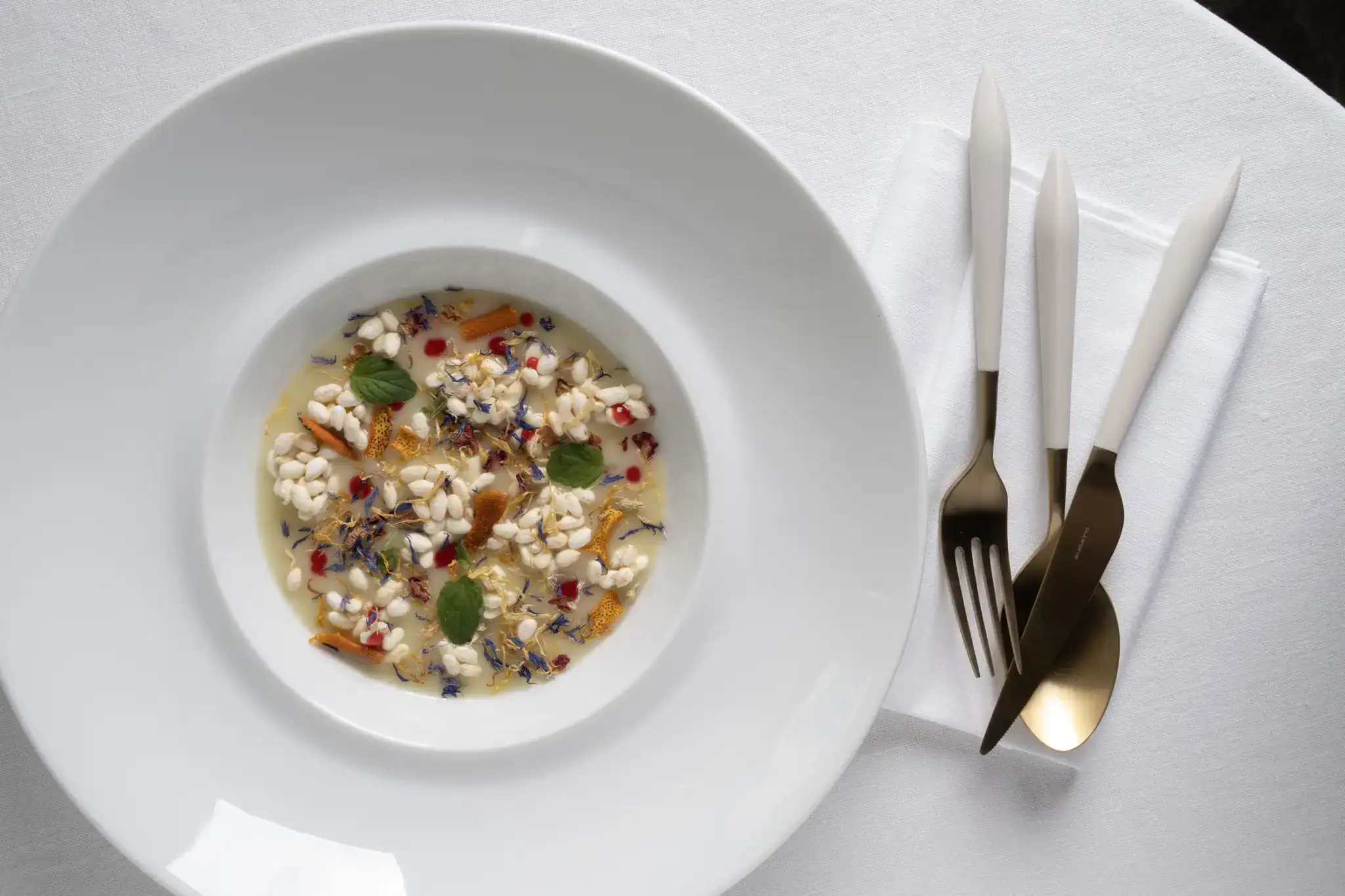We are not all in the kitchen for the sole purpose of marking the long days of quarantine, but also to worry about anything other than the pandemic and the consequences of it (with our sections "#iocucinoacasa" and "Stay home kneading dough" series we've tried to give you some input in this regard). So we worry about cooking time, leavening, pairings, so that our actions have short-term effectiveness: the success of the dish or dinner.
Our lifestyle has been turned upside down
We have changed our lifestyle radically, we try to make ourselves stronger and to spy on the lives of others through social networks and home windows, because this pandemic has involved us all, some more painfully than others. At this moment, reinventing our way of life is important, because going out and being together is a gene of the whole Italian population, probably Mediterranean. Maybe it's not so trying for those who live in other latitudes, but it is for us. As necessary and indispensable as it is, it's hard, we can't feel guilty about admitting it: the quarantine is hard, if only because we don't know when it will end.
Uncertainty brings with it a load of stress. What happens in the hypothalamus
This uncertainty brings with it an enormous load of stress, which is not a random psychological condition, it's rather a veritable organic situation in which our body finds itself: a trauma, but also the continuous dwelling on things that make us anxious, sends a signal to the hypothalamus which, in turn, secretes cortisol to the adrenal glands. Cortisol is always essential: it's the hormone that makes us wake up in the morning, the one that is produced in dangerous situations to activate a response, but when cortisol is constantly produced in an excessive way we run into problems including insomnia, altered blood pressure, impaired function of the hippocampus (responsible for our memory) and decreased immune defenses.
#istayhealthy, possibly both in body and in mind
But the mind sends signals and we respond by getting to work in the kitchen, cleaning the house compulsively, or maybe eating all day to curb fear before hunger. This may make sense, it's part of who we are, it was part of us even before the quarantine, coronavirus and #istayhome. Yes, but the situation may be longer than expected here and we would like to add #istayhealthy to the hashtags of the moment, possibly both in body and mind. So, taking advantage of the rediscovery of the kitchen in our homes, which in some cases was intended for the preparation of just one meal, and perhaps in a hurry. However, we also take advantage of the more extended time to implement survival solutions in addition to the hygiene rules that we should all know by now.
#istayhealthy. Four nutritional rules
Eat real, fresh, vegetables with every meal
Regardless of dietary regimen we follow for any reason, it's necessary to always include a good dose of plants on the table, primarily vegetables, for an adequate intake of minerals, soluble and insoluble fibers and antioxidants. In particular, magnesium is a mineral that our body uses a lot during stress and its deficiency only accentuates the symptoms: we sleep less, we can have muscle problems including cramps, and a general fatigue in our nervous system.
Take vitamin B
Thiamine, B6, B12, folic acid, each has various purposes including ensuring an adequate response to stress. When our diet lacks vitamins of the B group, we experience apathy, tiredness, difficulty concentrating, or actual neurological disorders. Here, too, real food comes to our aid: eggs (especially the yolk), liver, meat, green leaf plants... Junk food, packaged or processed foods are not recommended.
Stabilize the sleep cycle
There is a specific antidote to excess of cortisol, and it's called melatonin. Our bodies produce it in large quantities at night, the maximum peak is around 2 am and, in addition to allowing us to fall asleep, it increases brain plasticity, sleep quality and consequently the response to stress. How to produce sufficient quantities? Sleeping in complete darkness and, if possible, in complete silence, then eating dinner foods containing tryptophan such as pumpkin seeds, bananas, oats, white yogurt which, in addition to being a precursor of melatonin, also has a role in the management of stress eating.
Expose to natural light as much as possible
Whether it is on the condominium common area terrace or, simply, looking out the window during the hours when the light is the strongest, it's necessary to expose ourselves to natural light to keep mood and anxiety under control. Especially when the weather is good, the sun allows our body to produce a fair amount of vitamin D, which for years has been considered by scientific literature to be a powerful natural antidepressant. Furthermore, being exposed to natural light helps maintaining a correct circadian rhythm.
by Caterina Pamphili


 Little Italy in New York is Italian in name only. The disastrous effects of mass tourism
Little Italy in New York is Italian in name only. The disastrous effects of mass tourism "Trump is bullying Europe. With US tariffs at 30%, the consequences will be similar to the methanol crisis." Marco Caprai’s warning
"Trump is bullying Europe. With US tariffs at 30%, the consequences will be similar to the methanol crisis." Marco Caprai’s warning "Trump's tariffs? It's no longer time to be diplomatic. Europe must respond firmly." Matteo Lunelli speaks
"Trump's tariffs? It's no longer time to be diplomatic. Europe must respond firmly." Matteo Lunelli speaks The Michelin star king of Liguria opens a new restaurant: here is Luv by Mauro Ricciardi
The Michelin star king of Liguria opens a new restaurant: here is Luv by Mauro Ricciardi





